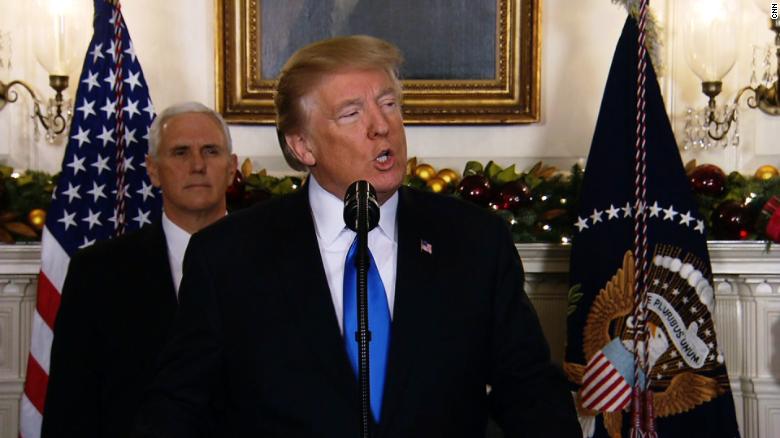IN THE MEDIA
Recognising Jerusalem as Israel’s capital is a welcome, symbolic move
December 17, 2017 | Colin Rubenstein

Colin Rubenstein
The Age/ Sydney Morning Herald/ Canberra Times – 17 December 2017
Imagine if no other country was prepared to accept that Canberra is our capital, to keep happy a neighbour with more international support, and a habit of issuing violent threats. Instead, they all site their embassies in Melbourne, and maintain that is the capital.
That, in a nutshell, was Israel’s situation, until Donald Trump officially recognised Jerusalem as the capital, and directed the State Department to begin preparing the lengthy process of moving the US embassy there.
Of course, as with everything involving Israel, it’s a bit more complicated, with parts of Jerusalem disputed. However, there is a basic principle of non-discrimination here. As Trump said, in a notably measured and careful speech: “Israel is a sovereign nation with the right like every other sovereign nation to determine its own capital.”
In reality, it’s not as complicated as those who disagree with Trump’s decision make out. As he said, the announcement does not affect final status issues, such as the ultimate boundaries of Jerusalem. It is in fact tantamount to acknowledging west Jerusalem only as Israel’s capital and certainly does not preclude the possibility that the Palestinians will have their own capital in the east of the city. Israeli Prime Minister Benjamin Netanyahu has said it will not affect the status of any of the holy sites, including those under Muslim control such as the Temple Mount/Al-Aqsa compound.
It just acknowledges the facts. Israel does have its capital in west Jerusalem. This has been part of Israel since its inception in 1948, and no one who accepts Israel’s right to exist argues that it won’t remain Israel’s capital in any future peace deal. Furthermore, in Jerusalem’s more than 3000-year history, it has been the spiritual centre of the Jewish world, and has always had a substantial Jewish population, with a Jewish majority since the mid-1800s. Apart from a Crusader kingdom, the only times it has ever been a capital have been when it has been ruled by Jews.
There has also been a bizarre campaign to erase any Jewish connection to the holy city. Bill Clinton once remarked that the only new idea Yasser Arafat brought to the Camp David negotiations in 2000 was that there had never been a Jewish Temple in Jerusalem. This exercise in rewriting history has in recent years been aided by UNESCO and even the UN, passing resolutions that refer to holy sites in Jerusalem only by their Arab names, thus whitewashing the Jewish ties to the city.
The argument against Trump’s move appears to be that it will make peace harder to achieve. Some Palestinians are certainly declaring this to be the end of negotiations, yet the reality is that in recent years the Palestinian leadership has attempted to achieve their state primarily through an international strategy, which does not rely on negotiations.
In fact, it is strongly arguable that Trump’s recognition is a positive move for peace hopes, especially recalling Israel’s repeated offers, most recently in 2008, of a Palestinian state that included land the equivalent of the entire West Bank and Gaza, not to mention a capital in east Jerusalem.Trump’s announcement may therefore encourage the parties, especially with the prospect of the US launching a new initiative in the not too distant future, to actually return to substantive negotiations.
Ironically, some of those protesting the Trump announcement the loudest are in favour of pre-empting the end game by recognising Palestine as a state. This is rank hypocrisy.
Russia and Vanuatu already recognise west Jerusalem as Israel’s capital, and hours after the Trump announcement, the Czech Republic made a similar declaration.
It is about time the rest of the international community joined them in acknowledging the obvious. Israel doesn’t deserve different treatment to every other country.
Recognising Jerusalem as Israel’s capital is a welcome, symbolic move to undo a historic injustice that hopefully will also eventually promote a renewed two-state peace process.
Dr Colin Rubenstein is executive director of the Australia/Israel & Jewish Affairs Council. Previously, he taught Middle East politics at Monash University for many years
Tags: Israel





